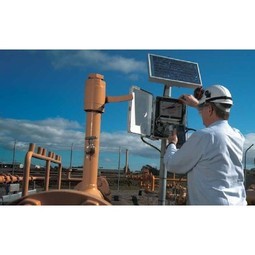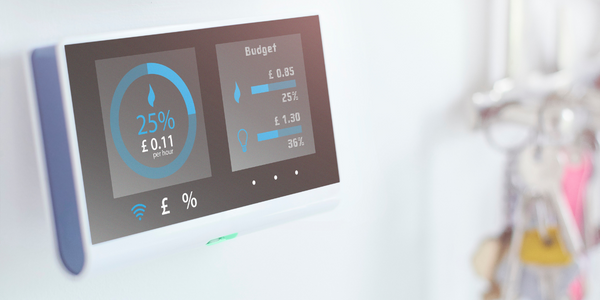公司规模
Large Corporate
地区
- America
国家
- United States
产品
- nGeniusONE Service Assurance platform
- InfiniStreamNG Appliances
- nGenius 3900 Series Packet Flow Switches
- nGeniusPULSE with virtual nPoints
技术栈
- Cloud Services
- VoIP
- SaaS
实施规模
- Enterprise-wide Deployment
影响指标
- Cost Savings
- Customer Satisfaction
- Productivity Improvements
技术
- 网络与连接 - 以太网
- 网络与连接 - 网络管理和分析软件
- 网络与连接 - WiFi
适用行业
- 公用事业
适用功能
- 物流运输
- 维护
用例
- 高级计量架构 (AMI)
- 能源管理系统
- 远程资产管理
服务
- 系统集成
- 测试与认证
关于客户
该客户是美国最大的能源公司之一,为多个州的数百万客户提供电力生产、输送和配送服务。该公司管理着近十几家电力公用事业运营公司,并拥有在非管制市场交易能源商品的子公司。该公司正在其客户群中实施智能电表,重点关注性能,特别是在防止停电和客户服务质量下降方面。智能电表的推出被认为对消费者和企业都非常有利,允许消费者通过在高峰需求期间调整公用事业使用情况来利用较低的费率,并使用 Nest 恒温器等设备自动调整使用情况。同时,更准确的使用信息将使公司能够减少峰值和谷值,从而更容易、更经济高效地管理能源生产,并有助于避免停电。
挑战
该能源公司正在其客户群中实施智能电表,并高度重视性能,特别是在防止停电和客户服务质量下降方面。然而,高级计量基础设施 (AMI) 服务(即智能电表)严重依赖网络通信,这使得公司的后端基础设施和应用程序容易出现性能问题。IT 团队需要对公司的虚拟服务器、企业服务总线 (ESB) 和跨分布式数据中心的收集引擎有关键的可视性,而无需在不同工具之间移动。实施 AMI 项目后,IT 面临着提高其他几项业务应用程序服务的故障排除能力的压力,包括 Microsoft Office 365、停电管理系统 (OMS) 和机组管理系统。该公司需要确保高质量的 VoIP 服务 - 尤其是来自远程站点和面向客户的联系中心的服务。
解决方案
该能源公司的 IT 团队求助于 NETSCOUT® 来预防性地避免网络问题并排除未来的潜在问题。nGeniusONE 服务器和 InfiniStreamNG 设备通过加密驱动器提供应用服务分类以实现合规性。nGenius 系列 3900 数据包流交换机 (PFS) 连接到公司的数据中心并为 InfiniStream 设备以及 PFS 交换机管理器和冗余服务器提供数据。PFS 仪器还用于公司的联系中心,以提供有线流量可视性,从而监控和分析 UC&C 服务。在初始 NETSCOUT 部署之后,IT 网络和事件管理团队需要解决影响其某些 SaaS 应用程序的访问和性能的问题以及影响其 VoIP 服务的质量问题。他们添加了 nGeniusPULSE,以便从远程站点和联系中心对 SaaS 和 VoIP 服务进行持续的综合测试。
运营影响
数量效益

Case Study missing?
Start adding your own!
Register with your work email and create a new case study profile for your business.
相关案例.

Case Study
IoT Solutions for Smart City | Internet of Things Case Study
There were several challenges faced: It is challenging to build an appliance that can withstand a wide range of voltage fluctuations from as low at 90v to as high as 320v. Since the device would be installed in remote locations, its resilience was of paramount importance. The device would have to deal with poor network coverage and have the ability to store and re-transmit data if networks were not available, which is often the case in rural India. The device could store up to 30 days of data.

Case Study
Automation of the Oguz-Gabala-Baku water pipeline, Azerbaijan
The Oguz-Gabala-Baku water pipeline project dates back to plans from the 1970’s. Baku’s growth was historically driven by the booming oil industry and required the import of drinking water from outside of the city. Before the construction of the pipeline, some 60 percent of the city’s households received water for only a few hours daily. After completion of the project, 75 percent of the two million Baku residents are now served around the clock with potable water, based on World Health Organization (WHO) standards. The 262-kilometer pipeline requires no pumping station, but uses the altitude differences between the Caucasian mountains and the capital to supply 432,000 m³/d to the Ceyranbatan water reservoir. To the people of Baku, the pipeline is “the most important project not only in 2010, but of the last 20 years.”

Case Study
GPRS Mobile Network for Smart Metering
Around the world, the electricity supply industry is turning to ‘smart’ meters to lower costs, reduce emissions and improve the management of customer supplies. Smart meters collect detailed consumption information and using this feedback consumers can better understand their energy usage which in turn enables them to modify their consumption to save money and help to cut carbon emissions. A smart meter can be defined in many ways, but generally includes an element of two-way communication between the household meter and the utility provider to efficiently collect detailed energy usage data. Some implementations include consumer feedback beyond the energy bill to include online web data, SMS text messages or an information display in consumers’ premises. Providing a cost-effective, reliable communications mechanism is one of the most challenging aspects of a smart meter implementation. In New Zealand, the utilities have embraced smart metering and designed cost effective ways for it to be implemented. The New Zealand government has encouraged such a move to smart metering by ensuring the energy legislation is consistent with the delivery of benefits to the consumer while allowing innovation in this area. On the ground, AMS is a leader in the deployment of smart metering and associated services. Several of New Zealand’s energy retailers were looking for smart metering services for their residential and small business customers which will eventually account for over 500,000 meters when the multi-year national deployment program is concluded. To respond to these requirements, AMS needed to put together a solution that included data communications between each meter and the central data collection point and the solution proposed by Vodafone satisfied that requirement.

Case Study
NB-IoT connected smart meters to improve gas metering in Shenzhen
Shenzhen Gas has a large fleet of existing gas meters, which are installed in a variety of hard to reach locations, such as indoors and underground, meaning that existing communications networks have struggled to maintain connectivity with all meters. The meter success rate is low, data transmissions are so far unstable and power consumption is too high. Against this background, Shenzhen Gas, China Telecom, Huawei, and Goldcard have jointly trialed NB-IoT gas meters to try and solve some of the challenges that the industry faces with today’s smart gas meters.

Case Study
OneWireless Enabled Performance Guarantee Test
Tata Power's power generation equipment OEMs (M/s BHEL) is required to provide all of the instrumentation and measurement devices for conducting performance guarantee and performance evaluation tests. M/s BHEL faced a number of specific challenges in conducting PG tests: employing high-accuracy digital communications for instrumentation, shortening setup and dismantling time, reducing hardware required, making portable instrument setup, avoiding temporary cabling work and the material waste costs

Case Study
British Gas Modernizes its Operations with Innovative Smart Metering Deployment
The UK government has mandated that smart meters are rolled out as standard across Great Britain by end of 2020, and this roll-out is estimated to create £14 billion in net benefits to the UK in consumer energy savings and lower energy generation demand, according to the Oxford Economics report, “The Value of Smart Metering to Great Britain.” While smart-metering systems have been deployed in many countries, the roll-out in Great Britain is unique because it is led by energy retailers, who have responsibility for the Electricity and Gas meters. The decision to have a retailer-led roll out was made by DECC (Department of Energy and Climate Change) to improve customer experience and drive consumer benefits. It has also led to some unique system-level requirements to support the unique local regulatory model.



